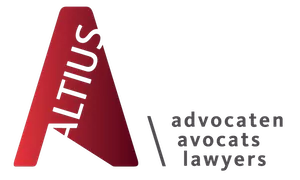On 19 December 2024, the Belgian Supreme Court made a significant decision that has clarified the complexities surrounding State immunity, the burden of proof, and the obligation of debtor States to cooperate in that respect. This ruling not only clarifies existing legal principles but also introduces nuanced considerations regarding how factual presumptions can be utilised to meet evidentiary requirements in cases involving sovereign immunity.
Context – the legal question
Under Belgian law (Article 1412quinquies, paragraph 1 of the Judicial Code), the property of a foreign State located in the territory of Belgium shall not be subject to attachment.
However, the principle of immunity from enforcement is not absolute. A foreign State may waive immunity. Furthermore, a creditor may enforce against assets used for 'other than non-commercial purposes' (Article 1412 quinquies, paragraph 2). Therefore, the purpose for which an asset is used is the central criterion to define the scope of the immunity enjoyed by a foreign State. Goods that are affected to commercial use are not excluded from enforcement measures. The affectation of the assets of a foreign power is assessed on the basis of all the concrete circumstances of the case.
The pivotal question is who bears the burden of proof of an asset being used for 'other than non-commercial purposes'.
Appeal Court decision
This was one of the questions raised in the dispute between the Albanian State and its creditors after the creditors' attachment of Albania's claim against Eurocontrol for the route charges collected by the latter on behalf of Albania.
The Brussels Court of Appeal held that the proof that the seized assets were specifically used or intended to be used other than for non-commercial public service purposes had to be provided by the creditors alone in the first instance, in particular in the context of the unilateral application procedure. However, this requirement did not preclude that, in the context of the adversarial proceedings that followed, the debtor State must cooperate in the taking of evidence as set out in Article 8.4, paragraph 3 of the Civil Code. In the absence of an express derogation, this principle applies to States in immunity disputes under Article 1412quinquies of the Judicial Code. This is certainly so in that it is clear that the creditors did not have access to all the information available that would have been useful for the dispute's resolution (regarding the asset's nature).
The Court of Appeal considered that, given the serious, precise and consistent evidence that, in the past, the route charges collected by Eurocontrol for the State, were not used or intended exclusively for non-commercial public service purposes and that, therefore, the seized assets were at least partially seizable by virtue of the exception in Article 1412quinquies, § 2, 3° of the Judicial Code, the creditor provided evidence that the seized assets were, at least partially, intended for commercial purposes, and that they were not exclusively intended for non-commercial public service purposes.
The Court of Appeal then considered that for these seized assets it was up to the State to demonstrate and indicate the proportion actually allocated to a sovereign activity and the proportion that was not, which the creditors were not in a position to do as they did not have access to this information. In the absence of any element making it possible to distinguish between the commercial use and the allegedly sovereign use of the route charges seized in this case, the Court of Appeal decided that the State had to bear the consequences of the absence of evidence supporting its argument.
Supreme Court decision
The State (and other parties involved) filed an appeal with the Supreme Court, which did not quash the decision.
The Supreme Court confirmed that the burden of proving that the conditions for the application of the exception to the immunity of property belonging to a foreign power have been met lies with the seizing creditor, without prejudice to the parties' obligation under Article 8.4 of the Civil Code to cooperate in the administration of the evidence.
Given the Court of Appeal's factual assessment determining the absence of any factor enabling a distinction to be drawn between the commercial use and the allegedly sovereign use of the route charges seized had resulted in a presumption that all of those charges were specifically used or intended to be used by the State for purposes other than non-commercial public service purposes, the Supreme Court ruled there was no infringement of Article 1412quinquies § 2 of the Judicial Code.
Conclusion
This ruling alters the dynamics of sovereign debt recovery and underscores a critical shift from the traditional view that once a State asserts its immunity, the onus of proof is solely on the creditor. A debtor State's inadequate response or lack of cooperation could significantly hinder its ability to claim immunity successfully. In the context of the administration of proof regarding immunity, a State is to be treated as any other party or debtor.
One of the most compelling aspects of the ruling involves the Supreme Court's apparent acceptance of factual presumptions as a form of evidence. This is welcome in contexts where definitive proof could be difficult to establish, particularly involving State actors whose internal operations can often be opaque.
The Supreme Court's decision sets a vital precedent. By clarifying that the debtor State should cooperate in the administration of proof and by embracing the use of factual presumptions, the Court has advanced a more pragmatic and equitable approach to disputes involving sovereign entities.
The content of this article is intended to provide a general guide to the subject matter. Specialist advice should be sought about your specific circumstances.


